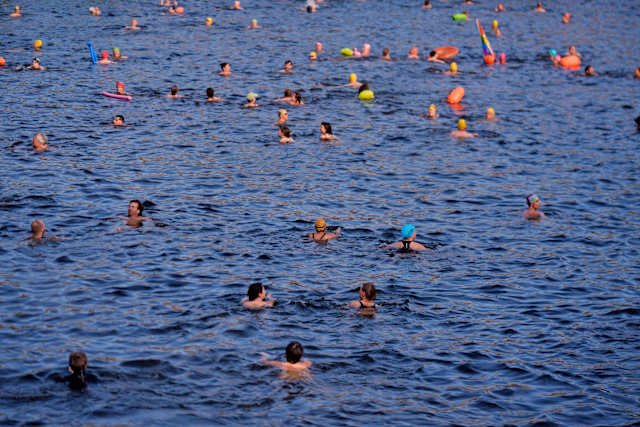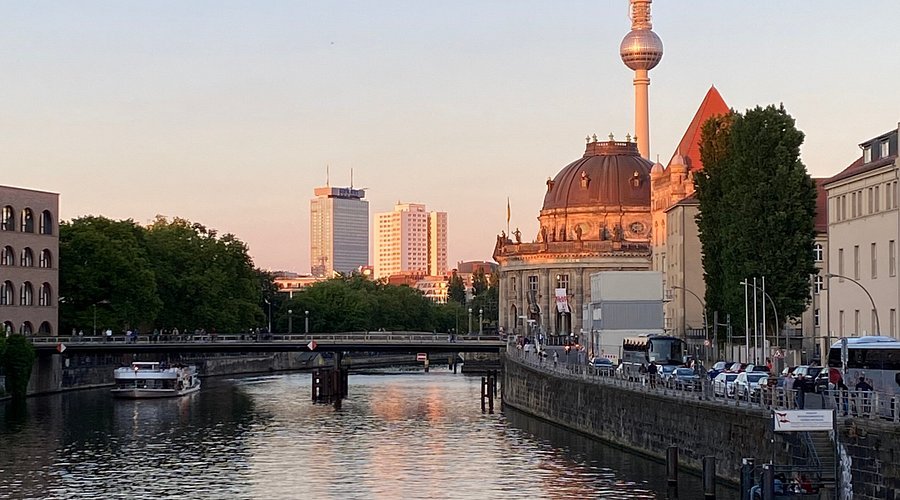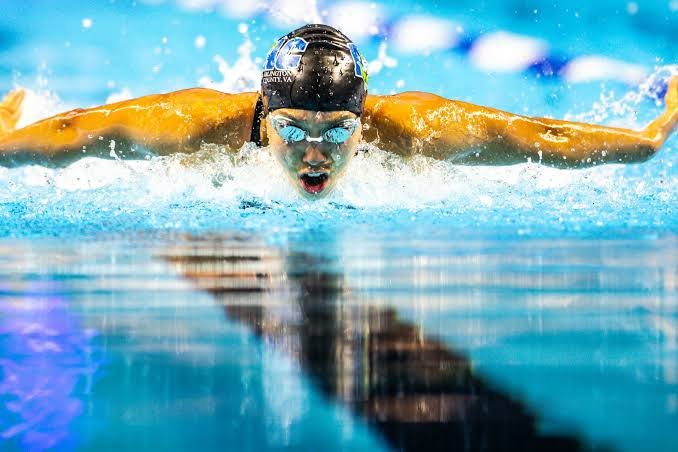
BERLIN — A hundred years after Berlin prohibited swimming in the Spree River due to its pollution posing health risks, swimmers are advocating to return to the water.
Approximately 200 individuals leaped into the sluggish, greenish water on Tuesday to demonstrate that it’s not only clean, but also very enjoyable to splash and swim in the Mitte area near the renowned Museum Island.
A collective known as Fluss Bad Berlin, or River Pool Berlin, has been advocating for years to allow swimmers back into the winding river.
“For a century, swimming in the inner-city Spree has been prohibited, and we believe this is no longer warranted, as we can demonstrate that the water quality is generally adequate for swimming throughout the season,” stated Jan Edler, a member of the board of Fluss Bad Berlin and a contributor to the organization of Tuesday’s swim-in.
To bypass the prohibition, the group designated their joint swimming event as a formal demonstration.
Positioned on a small staircase descending to the Spree canal, which wraps around the southern edge of the island, Edler emphasized that “we want the community to utilize the Spree for leisure once more.”
He emphasized that the river has been thoroughly cleaned, and the water quality has enhanced over the past ten years and is consistently being monitored.
City officials in Berlin’s central Mitte district have expressed interest in reintroducing river swimming in 2026.
“Many aspects still require clarification, but I am hopeful that it can be successful,” district city councilor Ephraim Gothe recently stated to the German news agency dpa.
Advocates for removing the swimming prohibition also reference Paris, where the Seine River was made accessible for swimmers during last year’s Olympic Games and will be available this summer for residents of Paris. Swimming in that area has been prohibited since 1923.
In Vienna, water enthusiasts can dive into the Danube River canal, in Basel they can swim in the Rhine, and in Amsterdam there are specific spots for people to jump into the canals.
Since May 1925, swimming has been consistently banned in the Spree in Berlin, when the German capital shut down all conventional river pools due to the water being considered too contaminated. Certain pools served not only for leisure swimming but also as a spot for individuals without bathrooms at home to clean themselves.
Currently, the water is clear on most occasions, except during heavy rainfall, which causes some pollution.
Permitting swimmers to enter the river would also involve relaxing the historical monument protections on certain riverbank areas to create easier access to the water and designated zones for lifeguards.
An additional issue is the heavy boat traffic on the Spree that might pose a risk to swimmers. Currently, the Fluss Bad Berlin group aims to establish a nearly 2-kilometer-long (just over a mile-long) canal where boat traffic is absent.
The German capital, with a population of 3.9 million, certainly requires additional spots for people to refresh during summer since standard outdoor pools often become excessively crowded on hot days.
“The temperatures in the cities are rising,” Edler stated. “It’s also an issue of environmental fairness to provide opportunities for individuals who cannot leave the city during extreme heat and can relax in the countryside.”

